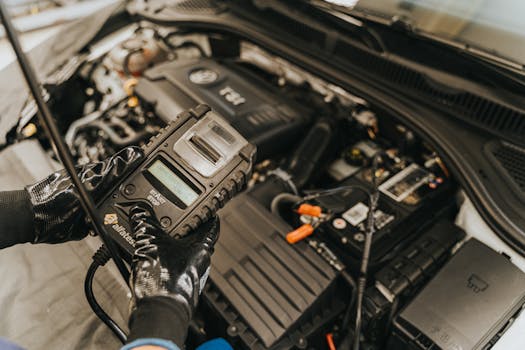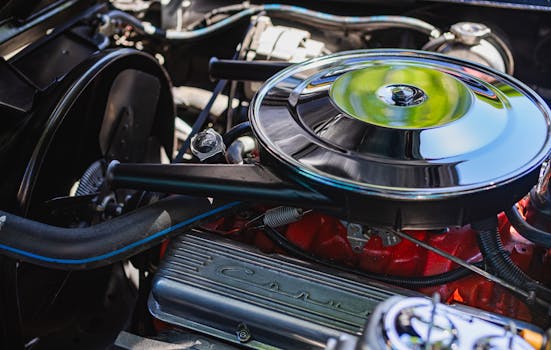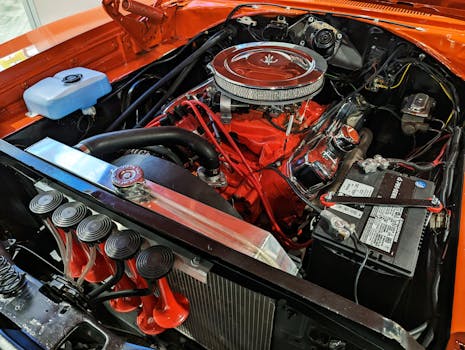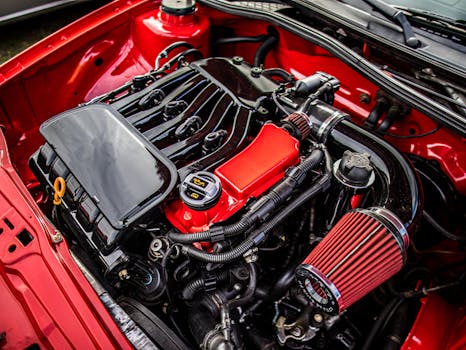
Essential Tips for Maintaining Your Car’s Engine Effectively
Takeaways: Regular maintenance is crucial to keeping your car’s engine running smoothly. Key practices include changing the oil regularly, checking the air filter, ensuring proper coolant levels, and inspecting spark plugs. Follow these tips to enhance your vehicle’s performance and longevity.
Maintaining your car’s engine is vital for ensuring its longevity, performance, and safety. A well-maintained engine not only runs more efficiently but also saves you money on repairs and fuel. In this article, we will explore essential tips and practices for effective engine maintenance that every car owner should know.
1. Regular Oil Changes

It’s generally recommended to change your oil every 5,000 to 7,500 miles, but always consult your owner’s manual for specific guidelines for your vehicle. Additionally, consider using high-quality synthetic oil, which offers better protection and performance compared to conventional oils.
2. Check and Replace Air Filters

To check your air filter, locate it in the engine compartment (usually near the engine) and inspect it for dirt and debris. If it appears dirty or discolored, it’s time for a replacement. A clean air filter can improve acceleration and increase fuel efficiency.
3. Monitor Coolant Levels
Coolant helps regulate your engine’s temperature and prevents overheating. It’s essential to check your coolant levels regularly and top them off as needed. Most vehicles have a coolant reservoir that indicates the proper levels.
If you notice that your coolant levels are consistently low, it may indicate a leak in the cooling system that needs to be addressed. Always use the type of coolant specified in your owner’s manual, and consider flushing the coolant system every two years to remove any buildup of rust or debris.
4. Inspect and Replace Spark Plugs
Spark plugs are critical for igniting the fuel-air mixture in your engine’s cylinders. Worn or dirty spark plugs can lead to poor engine performance, reduced fuel efficiency, and difficulty starting the engine. It’s recommended to inspect your spark plugs every 30,000 miles and replace them as needed.
When replacing spark plugs, make sure to use the correct type and gap specified in your owner’s manual. A simple spark plug replacement can significantly improve your vehicle’s performance and fuel economy.
5. Keep an Eye on Belts and Hoses

Most belts and hoses should be replaced every 60,000 to 100,000 miles, but it’s good practice to check them regularly, especially if you notice any unusual noises or performance issues.
6. Schedule Regular Professional Inspections

Consider having your vehicle professionally inspected at least once a year or more frequently if you drive in harsh conditions or have an older vehicle. Regular check-ups can help catch issues early before they develop into costly repairs.
Conclusion
Maintaining your car’s engine is not just about keeping it running; it’s about ensuring safety, performance, and longevity. By following the maintenance tips outlined in this article, you can prevent breakdowns, improve fuel efficiency, and extend the life of your vehicle. Remember, a little time spent on maintenance can save you a lot of money in the long run. Start implementing these practices today and enjoy a smoother, more reliable ride!







